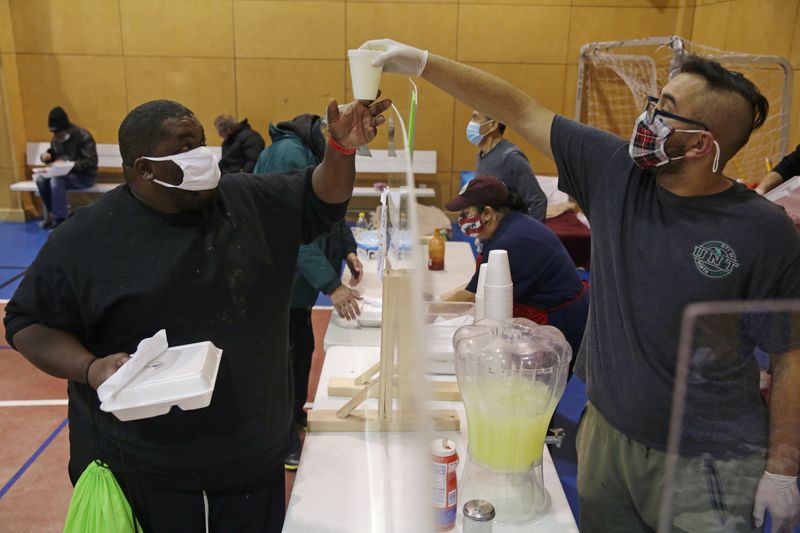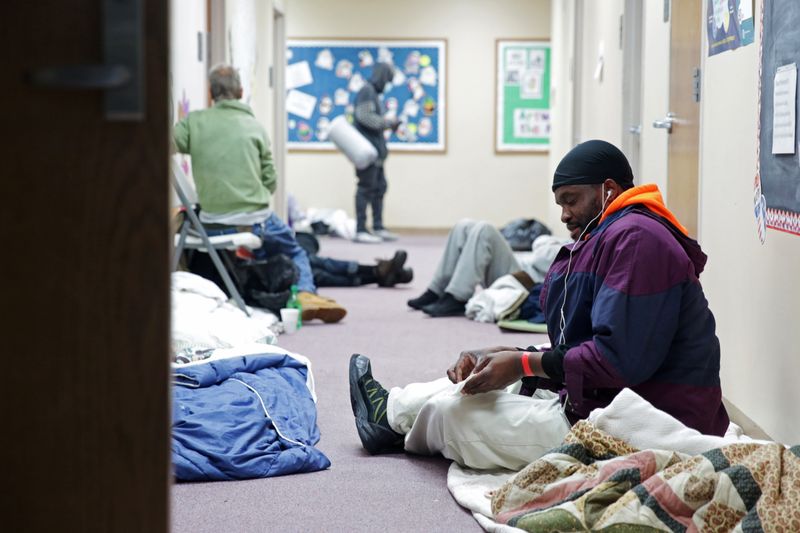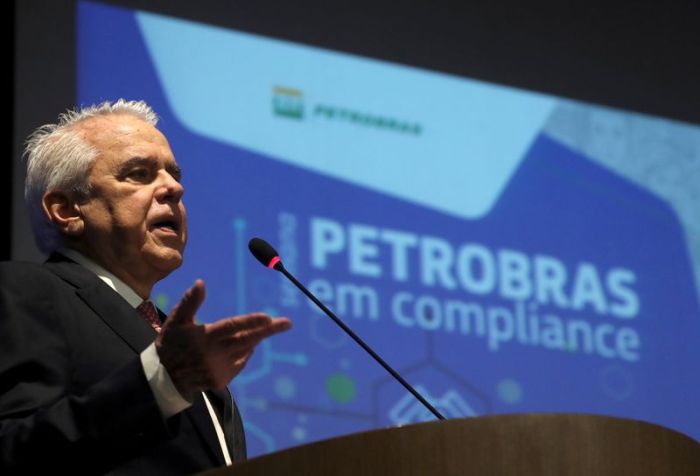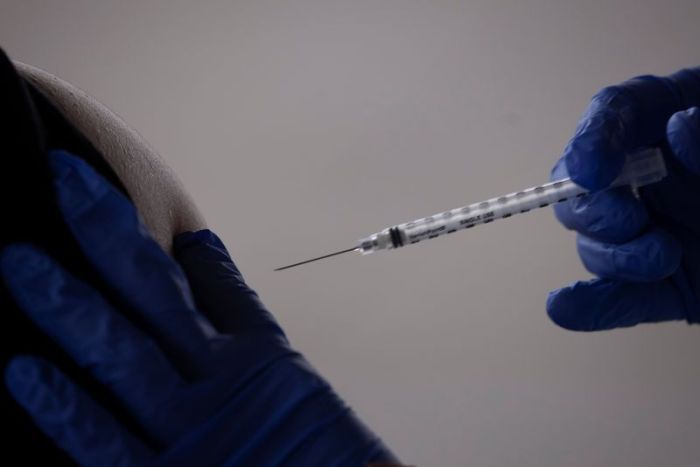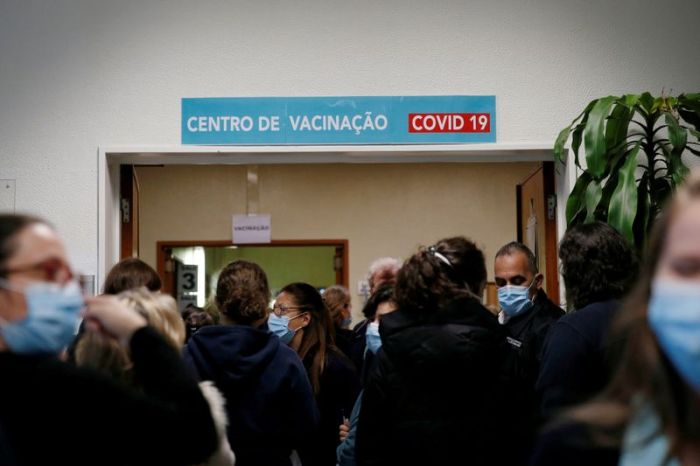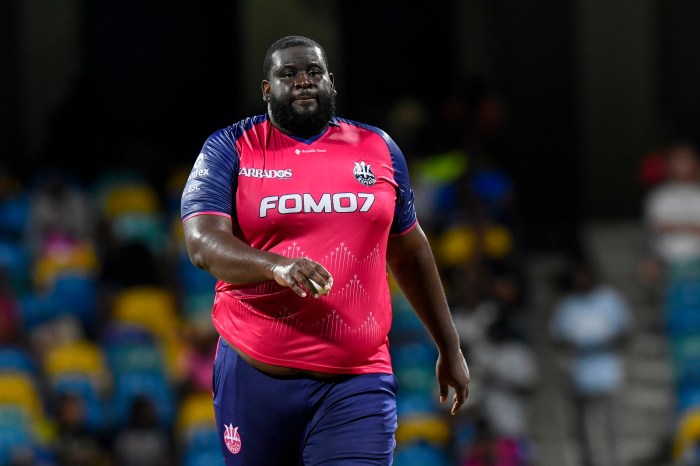HOUSTON (Reuters) – In the latest fallout from a crippling winter storm, more than 14 million Texans on Friday had to endure disrupted water service, leaving many longing for a hot shower just as the state’s power grid jerked back to life after five days of blackouts.
All the state’s power plants were functioning again, although more than 195,000 homes remained without electricity on Friday morning, and residents of 160 of Texas’ 254 counties had water service disruptions, according to the Texas Commission on Environmental Quality.
Nearly two dozen deaths have been attributed to the cold snap. Officials say they suspect many more have died, but the bodies have not been discovered.
A warming trend is expected to relieve some of the pressure on the region on Saturday, the National Weather Service said.
“One more night of below freezing temperatures at some areas, then a warm up is expected into the weekend,” the weather service’s Houston office wrote on Twitter on Friday.
Bitter cold weather and snow have paralyzed Texas since Sunday, shutting down much of the state’s electricity grid and freezing pipes and waterways, leaving communities across the state either without water altogether or forced to boil it for safety.
Monday was the third coldest day since record keeping began, according to Texas State Climatologist John Nielsen-Gammon, with a statewide average temperature of 16.7 degrees Fahrenheit (minus 8.5 degrees Celsius), citing records dating back to 1899.
That same day, temperatures in the state capital Austin dropped below those in parts of Alaska.
Jennifer Jordan, 54, of Midlothian just south of Dallas, said she and her husband were without power even though the family’s online account with the provider indicated their issues had been “resolved.”
“I have no power at my house – not one drop of power,” the high school special-education teacher said in an interview. “It’s really hard. You are really longing to get a hot shower, eat a hot meal.”
But even as services in many neighborhoods return, broken pipes and other damage continue to render some homes uninhabitable.
In Houston on Friday, plumbers worked on Friday to repair pipes that froze and ruptured in Drew Ainscough’s 1920s bungalow, damaging several rooms. Water service has been returned to his block, but remains turned off for their home as repairs continue.
“Right now, we’re not really able to live in there,” said the 33-year-old engineer, who has been staying with his in-laws for the past several days. “Hopefully, by this weekend we’ll be able to have everything cleaned up enough.”
In parts of the state, frozen roads remained impassable. Ice-downed lines and other issues had utility workers scrambling to reconnect homes to power, while oil and gas producers look for ways to renew output.
Hospitals in some hard-hit areas ran out of water and transferred patients elsewhere. Millions of people were ordered to boil their drinking water after water-treatment plants lost power, which could allow harmful bacteria to proliferate.
In Houston, a mass distribution of bottled water opened at Delmar Stadium on Friday, the city’s Office of Emergency Management said. Around midday, the line of cars waiting to enter the stadium stretched for at least half a mile, one police officer told Reuters.
Speaking at the stadium distribution site, Houston Mayor Sylvester Turner said the city aimed to distribute more than 1 million bottles of water to its residents on Friday and that another mass distribution would take place on Saturday.
A boil-water order for the city might be lifted as soon as Monday, he said.
Lina Hidalgo, the top elected official in Harris County, which encompasses Houston, said she was pleased with progress, but warned residents to brace for more hardship.
“The grid is still fragile,” she said, noting cold weather would persist for a few days, which would “put pressure on these power plants that have just come back on.”
President Joe Biden said he would accelerate federal emergency assistance for Texas and had directed his administration to identify other resources to help the state.
Biden said he would meet with the head of the Federal Emergency Management Agency (FEMA) on Friday and ask him to issue a major disaster declaration to speed up aid.
“God willing, it will bring a lot of relief to a lot of Texans,” Biden told reporters at the White House.
POWER BACK
Texas Governor Greg Abbott confirmed that all power-generating plants were online as of Thursday afternoon. He urged lawmakers to pass legislation to ensure the grid was prepared for cold weather in the future.
“What happened this week to our fellow Texans is absolutely unacceptable and can never be replicated again,” Abbott told an afternoon news conference.
The governor lashed out at the Electric Reliability Council of Texas (ERCOT), a cooperative responsible for 90% of the state’s electricity, which he said had told officials before the storm that the grid was prepared.
Officials said during a press call on Friday that ERCOT has enough generation in its system to return to normal operations.
“I really want to acknowledge this immense human suffering we saw throughout this event,” ERCOT Chief Executive Bill Magness said at a news conference on Friday. “When people lose power, there are heartbreaking consequences.”
Two community hospitals that are part of the Houston Methodist system in Texas’ largest city had to get “creative” when their water supply was cut off this week, said Public Relations Director Stefanie Asin. A shower trailer was brought in for frigid, exhausted staff, and laundry bins were deployed to collect rainwater to flush toilets.
As of Friday, water service had been restored at those hospitals, Asin said in an interview.
“The water will be challenging,” she said. “We’ve handled it so far, we’ll continue handling it. … But we’ll still need to take precautions.”
(Reporting by Brad Brooks in Lubbock, Texas, Nathan Layne in Wilton, Connecticut, Callaghan O’Hare in Houston and Steve Holland in Washington; Additional reporting by Stephanie Kelly and Maria Caspani in New York and Gary McWilliams in Houston. Writing by Maria Caspani and Sharon Bernstein; Editing by Gerry Doyle, David Gregorio and Frank McGurty)

